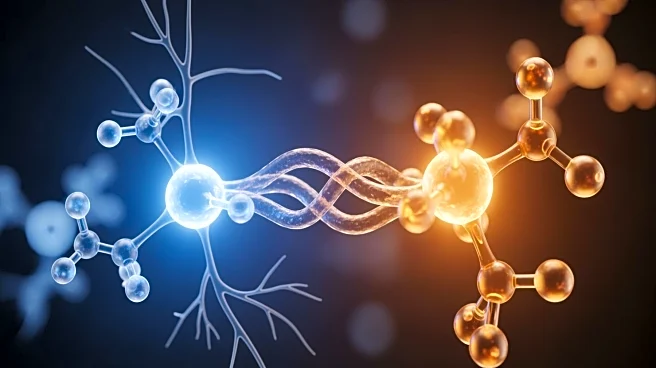What's Happening?
Researchers at the Hebrew University of Jerusalem have uncovered a new mechanism by which acetaminophen, commonly known as Tylenol, alleviates pain. Previously believed to act solely in the brain and spinal
cord, the study reveals that acetaminophen also targets nerve endings in the body. The active compound, AM404, interferes with sodium channels in pain-sensing neurons, effectively blocking pain signals before they reach the brain. This discovery, published in the Proceedings of the National Academy of Sciences, challenges long-standing assumptions about the drug's function and suggests a dual action both in the nervous system and at the site of pain.
Why It's Important?
This breakthrough in understanding acetaminophen's mechanism could lead to the development of more effective and safer pain treatments. By targeting only the nerves that carry pain, future drugs based on AM404 might avoid the side effects associated with traditional local anesthetics, such as numbness and muscle weakness. This could significantly impact the pharmaceutical industry by providing a new pathway for pain management, potentially benefiting millions who rely on pain relief medications.
What's Next?
The findings open the door for further research into AM404 and its potential applications in new pain relief drugs. Pharmaceutical companies may explore the development of next-generation painkillers that leverage this dual mechanism, aiming for treatments that are both highly effective and have fewer side effects. This could lead to a shift in how pain management is approached, with a focus on precision and safety.









